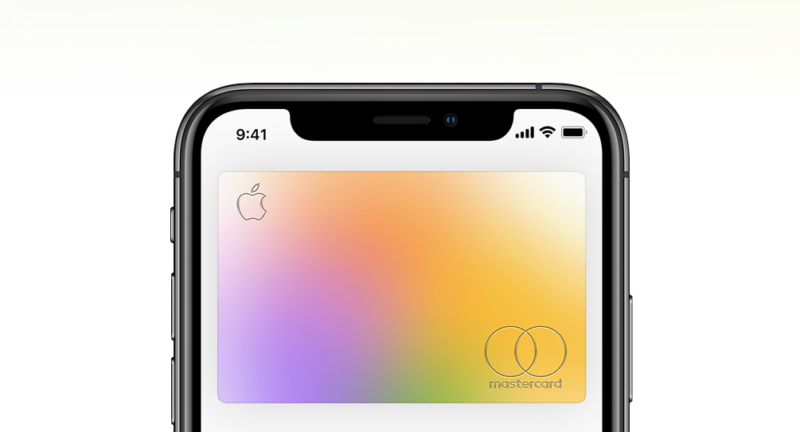
Apple's new credit card is rolling out in stages to interested users (I got mine on Monday) and the early reception is generally positive. The card's primary draw isn't in its benefits, which are perfectly fine but not outstanding by any metric. Instead, the card's strength is in its tight vertical integration with the Apple technology ecosystem and the (hopefully) increased security one gains by moving to using tokenized payments for (most of) your point-of-sale transactions. The card otherwise has a lot in common with other traditional credit cards—and, unfortunately, one of those things is the Apple Card's forced arbitration provision.
Briefly, this means that there is language in the Apple Card/Goldman Sachs' customer agreement that requires customers to give up their right to file lawsuits against Goldman or Apple, either individually or as members of a class, and instead forces customers into accepting binding arbitration to resolve disputes. Although binding arbitration is frequently defended by proponents as being faster and less expensive than lawsuits, arbitration heavily favors companies over consumers in disputes. The arbitrator or arbitrators are typically chosen by the company engaging in arbitration and tend to favor the company's interests; studies show that in the vast majority of cases, the odds of winning are heavily on the company's side. The bias in arbitration outcomes has been taken advantage of by numerous companies—including companies we regularly cover—to engage in some truly shady dealings.(It's not just consumers who get shafted by arbitration—many companies force their own employees into mandatory arbitration, too, though a number of employers are beginning to walk back the practice.)
Tell them to get stuffed
Fortunately, most arbitration clauses have a way to opt out if you're willing to look hard enough, and the Apple Card's policy is one of the easier ones to escape from. The agreement explains how to snatch your rights back from Apple and Goldman Sachs:HOW TO REJECT THIS ARBITRATION PROVISION
YOU MAY REJECT THIS ARBITRATION PROVISION BY CONTACTING US USING MESSAGES, CALLING US, OR WRITING TO US, AND STATING THE FOLLOWING: (I) YOUR NAME; (II) THE EMAIL ADDRESS ASSOCIATED WITH YOUR ACCOUNT; (III) THE ADDRESS ASSOCIATED WITH YOUR ACCOUNT; AND (IV) THAT YOU ARE EXERCISING YOUR RIGHT TO REJECT THIS ARBITRATION PROVISION (A "REJECTION NOTICE"). YOUR REJECTION NOTICE MUST BE RECEIVED WITHIN 90 DAYS AFTER THE OPENING OF YOUR ACCOUNT. IF YOUR REJECTION NOTICE COMPLIES WITH THESE REQUIREMENTS, THIS ARBITRATION PROVISION WILL NOT APPLY TO YOU, EXCEPT FOR ANY CLAIMS SUBJECT TO PENDING LITIGATION OR ARBITRATION AT THE TIME YOU SEND YOUR REJECTION NOTICE. ANY REJECTION NOTICE THAT COMPLIES WITH THIS PROVISION WILL APPLY TO BOTH US AND APPLE. REJECTION OF THE ARBITRATION PROVISION WILL NOT AFFECT YOUR OTHER RIGHTS OR RESPONSIBILITIES UNDER THIS ARBITRATION PROVISION OR THIS AGREEMENT.
You can opt out of the arbitration agreement within 90 days of opening your Apple Card account, and you can do so by calling Apple at 877-255-5923 or by writing a letter to Lockbox 6112, P.O. Box 7247, Philadelphia, PA 19170-6112. Or you can do what I did and opt out directly from the Wallet app by using its built-in chat function. Tapping on the icon launches the Messages app, and opting out takes about 30 seconds:
-
The "Message" button up there will get you where you need to be.
-
The opt-out was quick and easy.
While I'm clearly against mandatory arbitration—my belief is that it's a blatantly anti-consumer and anti-employee tactic with zero practical upsides for anyone other than the businesses pushing for it—it's worth reading about the practice yourself and making an informed decision (though finding non-biased pro-arbitration literature that lays out a compelling use-case for consumers and employees is a challenge somewhat on the order of finding fact-based, anti-vaccine data). As LeVar Burton used to say, don't just take my word for it—make your own informed choice.
reader comments
208